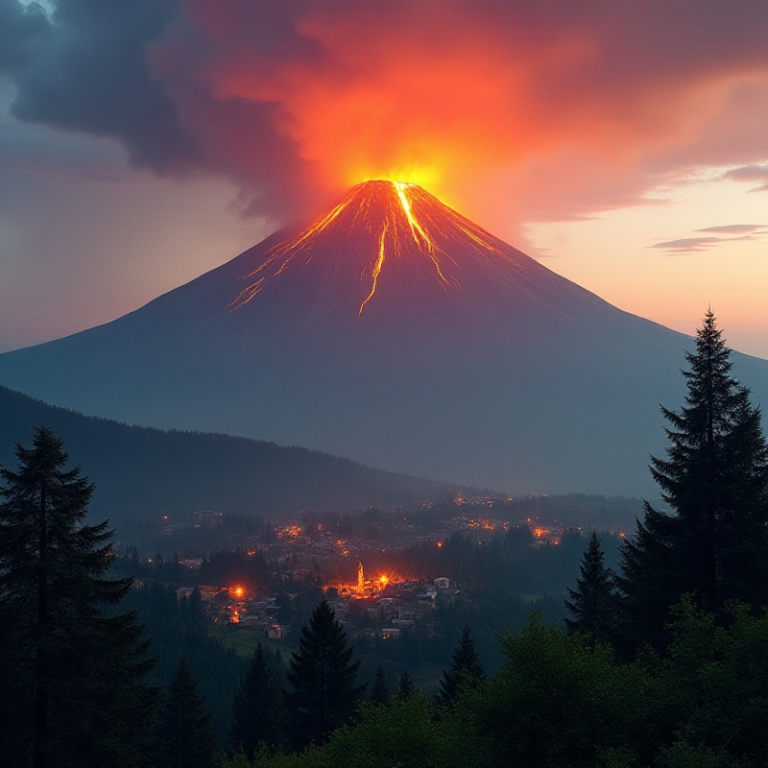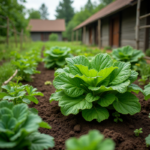When a volcanic eruption happens, being prepared can save lives—including yours! Whether you live near a volcano or are just visiting a volcanic region, knowing how to protect yourself is critical. With a little planning, the right supplies, and a cool head, you can get through one of nature’s most dramatic events safely.
Let’s dive into everything you need to know to handle a volcanic eruption.
What Happens During a Volcanic Eruption?
Volcanoes are incredibly powerful and unpredictable. They can release fiery lava, toxic gases, and heavy clouds of ash that affect the air, land, and water. Here are the main risks:
- Lava flows: Rivers of molten rock that destroy anything in their way.
- Ash clouds: Fine particles that can make it hard to breathe and reduce visibility.
- Pyroclastic flows: Superheated clouds of gas and debris that move fast and are extremely dangerous.
- Lahars: Mudflows caused by volcanic activity that can bury entire areas.
Understanding these risks helps you prepare for what to expect if a volcanic eruption occurs.
Get Ready Before a Volcanic Eruption
Preparation is your best defense against volcanic disasters. Here’s how to stay ahead of the game:
Create a Family Emergency Plan
Sit down with your family or roommates and talk through what everyone should do if a volcanic eruption happens. Know the safest routes to evacuate, where to meet up, and how to stay in touch.
Build a Volcanic Emergency Kit
Pack a kit with all the essentials you might need in a hurry. Make sure it includes:
- Masks (like N95 respirators) to protect against ash.
- Goggles to shield your eyes.
- Water and non-perishable food to last at least three days.
- A first aid kit and any important medications.
- A flashlight and extra batteries.
- A battery-powered radio for news and emergency updates.
Keep your kit in an easy-to-grab spot, so you’re ready to go if needed.
Stay Informed
Knowledge is power! Sign up for local alerts, check apps, or monitor the USGS website for updates on volcanic activity in your area.
Prepare Your Home
Take steps to protect your house from ash and debris. Clear gutters, seal windows and doors, and know how to shut off utilities if needed.
What to Do During a Volcanic Eruption
If a volcanic eruption begins, don’t panic—act! Here’s what to do:
Evacuate If Advised
Listen to local officials. If they tell you to leave, do so immediately. Follow designated routes, as shortcuts might be blocked or unsafe.
Protect Yourself from Ash
Volcanic ash isn’t like regular dust—it’s sharp and dangerous to breathe. Wear an N95 mask or cover your nose and mouth with a damp cloth. Protect your eyes with goggles, and avoid wearing contact lenses.
Stay Indoors if Necessary
If evacuation isn’t an option, shelter in place. Close all windows, doors, and vents, and seal cracks with damp towels to keep ash out. Turn off air conditioners or fans that pull air from outside.
Stay Clear of Valleys and Rivers
Lava, mudflows, and pyroclastic flows tend to travel along valleys. If you’re outdoors, head for higher ground.
After the Volcanic Eruption
The eruption may end, but some dangers stick around. Stay cautious during the aftermath:
Clean Ash Safely
Ash is heavy, sharp, and can damage your lungs. Wear a mask and goggles when cleaning it up. Wet ash lightly before sweeping to keep it from becoming airborne, but avoid washing it into drains—it can clog systems.
Check for Damage
Look over your home and property for damage. Be especially careful of weakened roofs and other structural issues.
Stay Updated
Continue monitoring local updates. Authorities will let you know when it’s safe to return to evacuated areas or resume normal activities.
Stay Prepared Year-Round
Living in a volcanic region means staying prepared all the time. Keep your emergency kit stocked, review your family plan regularly, and stay aware of any changes in nearby volcanic activity.
Preparing for a volcanic eruption isn’t just about safety—it’s about peace of mind. When you know what to do, you’re in control no matter what nature throws your way.
Let’s face it: volcanoes are unpredictable, but you can be ready. With these tips, you’re not just surviving—you’re thriving in the face of a challenge!



